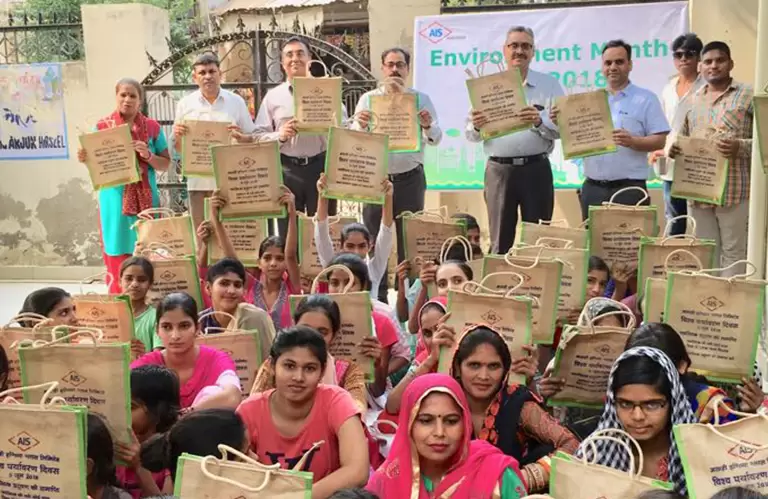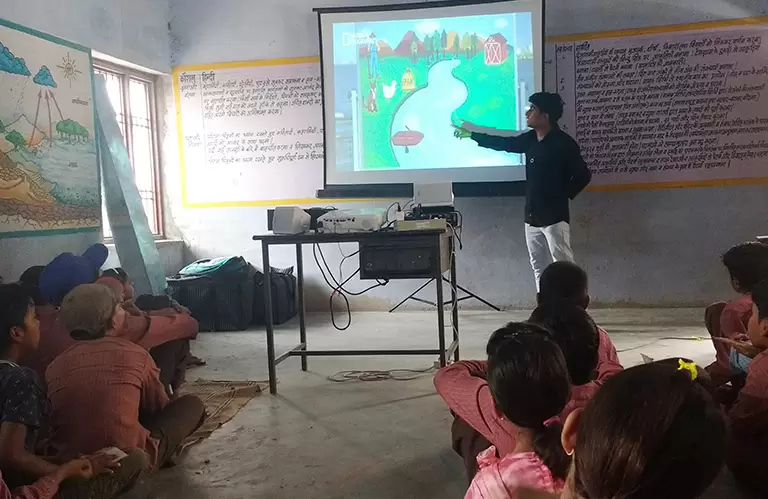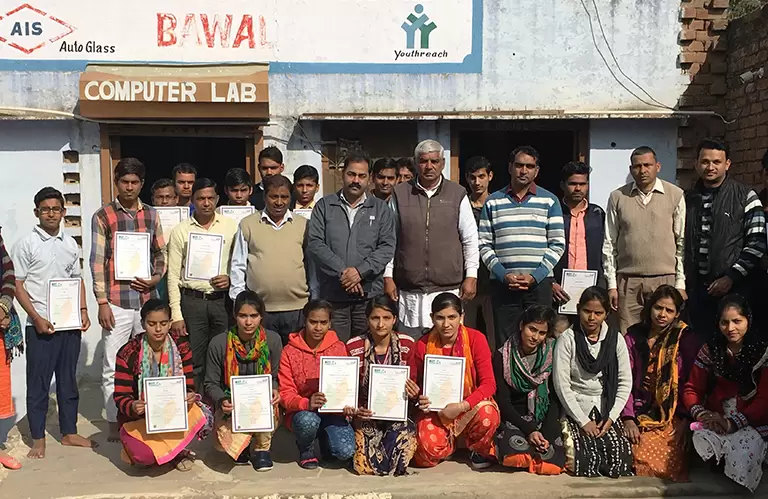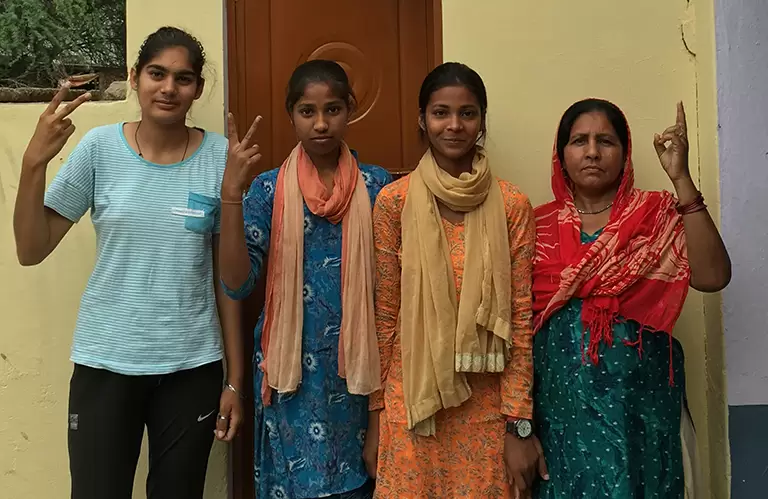As a responsible corporate citizen, AIS continues to earmark considerable resources for the common cause. AIS, among the premier glass manufacturing companies in India, has always believed that true corporate performance does not only mean delivering growth but addressing larger social issues like protection of the environment, education of the underprivileged and health and sanitation up-gradation. To that effect, over the years, the glass manufacturing company has been undertaking many community development initiatives around its manufacturing units.
To coordinate these diverse activities and bring them to a common platform, AIS decided that all such measures should coalesce into a common platform – The Integrated Community Development Program (ICDP). AIS ICDP is being administered and monitored by Youthreach – a Delhi-based NGO.
The enunciated goal of ICDP has been to enhance the quality of life in the community by providing services, enabling “community participation and leadership” towards mobilizing government, community and all other entities that are critical towards achieving this goal.
2007-08, being the last year for implementation of phase 2 of ICDP (Phase 1 covered 2004-06), continued targeting two areas for intervention and development each at Rewari and Roorkee “Education” and “Water & Sanitation” in Rewari and “Vocational Training” and “Enterprise Development” in Roorkee.
ENVIRONMENT
Environmental and social considerations have a strategic position in the outcomes and purpose of the business – as bottom lines. AIS follows a structured and documented system of best practices in the environment. AIS has been carrying out the following activities to protect and safeguard the environment.
- Conversion of arid land in and around its plants into a lush green belt.
- Upgradation of manufacturing and other processes to ensure the least possible impact on the environment.
- Rainwater harvesting at plants.
- Recycling of waste paper.
HEALTH AND SAFETY
Health protection and safety of operations are permanent commitments of AIS.
- AIS undertakes the following activities:
- Organising health awareness campaigns.
- Conducting awareness activities, including wall writing, folk songs and film shows to disseminate information on several health-related issues.
- Organising Health Camps.
- Organising health camps to provide access to primary health services, distribute medicines, render vaccines and referrals to Bawal Community Health Centre.
- Offer reorientation training to health service providers.
Health camps organised by AIS provide access to primary health services, distribute medicines, render vaccines and referrals to Bawal Community Health Centre.
Reorientation training to health service providers:
Reorientation training programmes are conducted for ANMs, tradition birth attendants and registered medical practitioners.
It has been our continuous endeavour to provide and maintain an absolutely safe working environment for all our employees. In our efforts in this space, we aim to keep up with the latest trends, standards and practices.
EDUCATION WITH AIS UNNATI CENTRES
The education programmes primarily focus on two areas – transportation of school children (especially the girl child) and establishing and running education centres (“AIS Unnati Centres”) for the school drop-out children.
School drop-out rates in this area are high among girls due to a lack of safe local transportation. The school bus programme of AIS started in 2004, continues to enable 475 girls from about 34 villages to safely commute from Rewari to their Senior Secondary School in Bawal.
Vocational training was given to more than 130 boys and 62 girls. Boys were trained in computer skills and girls in beauty culture. 20 girls have also been referred to as tailoring courses. Among those trained, 27 girls have already set up their enterprises on a full-time or part-time basis and 11 boys have been gainfully employed. To enable these youth to set up their businesses, enterprise management training is also being imparted.
WATER SUPPLY AND SANITATION
Falling levels of groundwater, lack of safe drinking water and increasing disuse of traditional knowledge and infrastructure are pressing issues in the realm of water and sanitation in Rewari. Under the water and sanitation programme being conducted in 60 villages around Rewari, awareness regarding rainwater harvesting, recycling, managing wastewater, water-saving cropping pattern building and low-cost sanitation facilities were imparted.




